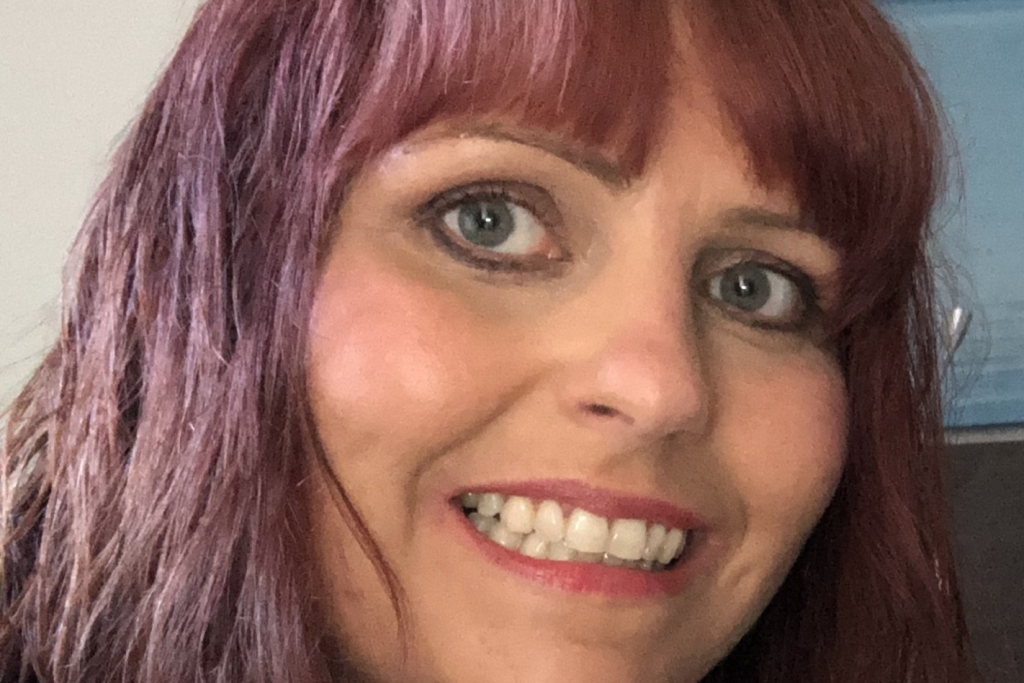7th May 2020
During UK Maternal Mental Health Awareness Week, we are sharing blogs from the devolved UK countries. Here, Marie Balment, Health Visitor, Aberdeenshire Health & Social Care Partnership, NHS Grampian., shares an update on Perinatal and Infant Mental Health in Scotland.

Marie Balment, Health Visitor, Aberdeenshire Health & Social Care Partnership, NHS Grampian.
Maternal Mental Health Awareness week is a fantastic opportunity for Health Visitors to highlight the work we do to support woman and families in the perinatal period. In Scotland, we have had an eventful few years with the establishment of the national Managed Clinical Network, which published a needs assessment report. This was a huge undertaking which was successful in prompting the Scottish Government announcement of £50 million investment to improve services. The Government’s Perinatal and Infant Mental Health Programme Board was then established and tasked with making a delivery plan. Health Visitors spoke out to ensure their vital work was recognised. We are still not where we need to be and, with the huge pressure that coronavirus has placed on the NHS, there is definitely concern that money is prioritised elsewhere.
Specialist services are vital for supporting families who face mental illness; however, a strong and well-trained universal workforce will reduce the burden on these services. As every Health Visitor will understand, our job is incredibly difficult to explain to someone in a few sentences and explaining to other professionals can be a challenge. We don’t fit comfortably into the categories of nursing, maternity services or infant mental health services, and one of the difficulties in Scotland, in my opinion, has been that the focus has been placed on these areas. The Best Start: A Five-Year Forward Plan for Maternity and Neonatal Care in Scotland policy was published in 2017 and makes significant changes to service delivery including maternity services input in the area of perinatal mental health. This has meant some really positive changes are happening, however this has unintentionally shifted focus from the entire perinatal period to maternity and neonatal periods when considering the support for families from universal services.
I am pleased we now have a Health Visitor who advises the Scottish Government Programme Board and I am hopeful we can continue to highlight the work that we do and encourage investment. The National Education Service Scotland is currently scoping perinatal and infant mental health training needs for Health Visitors and, as the only Health Visitor in Scotland to have completed the iHV champions programme, I was given the opportunity to share my experience with the Head of Programme for women children & families as part of the information gathering process.
Since coronavirus restrictions were put in place, HVs have been using innovative means to support women and families facing mental illness. In Aberdeenshire, we have proposed walk & talk sessions with families as a way to encourage mood-enhancing exercise, assessment of needs and active listening – all in open space and with social distancing, thus keeping risk to a minimum.
Personally, I am excited to see what progress we can make, as a nation, to improve services. Rurality is a real challenge is Scotland and it will take some novel ways of working to ensure that the entire population has access to the same level of care. With a large portion of the population staying in central and southern Scotland, the northern regions and islands are still in need of adequate specialist services for perinatal mental health. Fingers crossed that the year ahead brings continued investment and that we can resume the work that has been started.

